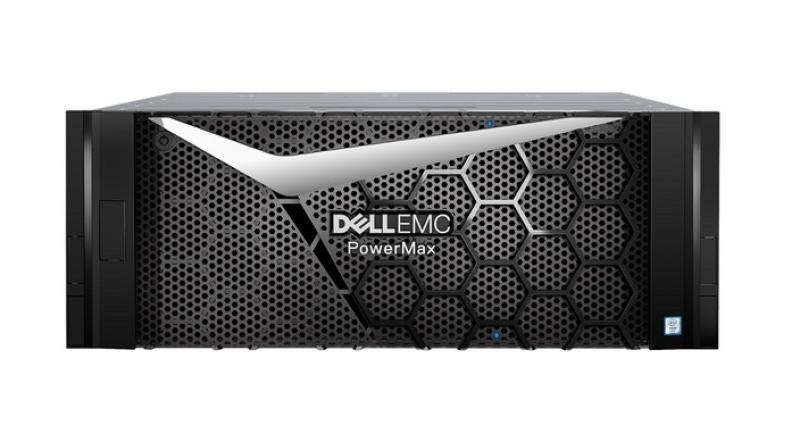Dell unveils new EMC storage and server products
These new products are targeted to power up the Modern Data Centre.

Dell Technologies has launched new Dell EMC storage and server products backed by a services portfolio. To power up the Modern Data Centre, these new products are designed to address a wide range of traditional and emerging data centre workloads to help customers drive better business outcomes.
From consulting to deployment and support, from managed services to education, Dell EMC Services are available to help drive the adoption and optimisation of the Modern Data Centre, for customers to integrate new technology and make it a productive component of their business.
Dell EMC PowerMax:
Dell EMC’s PowerMax claims to be the future of enterprise-class storage and is architected with end-to-end NVMe and a built-in, real-time machine learning engine. Building on the capabilities of Dell EMC’s flagship storage system, PowerMax promises to be the fastest storage array, delivering up to 10M IOPS and 50 per cent better response times – 2x faster than the nearest competitor.
It is also architected with end-to-end NVMe to support NVMe-over-Fabrics and high-speed, low-latency Storage Class Memory (SCM), and also engineered to handle the demanding application workloads.
In addition, the PowerMax OS includes a built-in machine learning engine, which makes autonomous storage a reality, leveraging predictive analytics and pattern recognition to maximise performance with no management overhead. It also has a built-in machine learning for the cost-effective way to leverage SCM.
PowerMax also includes inline deduplication and enhanced compression providing up to 5:1 data reduction. It claims to achieve greater than “six nines” availability to help ensure zero downtime of business-critical applications.
Dell EMC also offers expanded options for VxBlock 1000 customers, it promises that users can benefit from fast, smart and efficient storage with new support for PowerMax with end-to-end NVMe and XtremIO X2 All-Flash arrays. This means that the Vxblock system breaks the physical boundaries of traditional CI and claims to offer enterprises simplicity and flexibility to help accelerate their IT and digital transformation efforts.
To speed implementation of PowerMax or VxBlock in their environment, customers can take advantage of Dell EMC ProDeploy Plus services for up to 66 per cent faster deployment and up to 49 per cent fewer technical support calls.
Dell EMC XtremIO Replication and new entry price point:
XtremIO X2 All-Flash arrays gain major updates with the new XIOS 6.1 operating system, including delivering the replication across a wide area network (WAN). X2 metadata-aware native replication is highly efficient and provides an added level of data protection for application workloads.
XtremIO replication sends only unique data to the remote site to minimise bandwidth requirements by 75 per cent or more, enabling potential network cost savings. XtremIO replication requires up to 38 per cent less storage space at disaster recovery sites and operates with predictable performance to achieve recovery point objectives of 30 seconds.
Dell Technologies also introduced a new Dell EMC X2 entry model for customers, at up to 55 per cent lower cost than the previous generation. Designed with XtremIO’s metadata-centric architecture with full data services including inline data reduction (in-memory space-efficient copies, deduplication and compression), XtremIO can also achieve over “five nines” availability, offering customers enterprise-grade capabilities that start at midrange prices.
Dell EMC PowerEdge MX:
Dell EMC will preview PowerEdge MX, a new modular infrastructure solution for the modern data centre. Designed with Dell EMC’s kinetic infrastructure, PowerEdge MX will enable customers to flexibly configure and optimise their IT infrastructure for new and emerging workloads.
Available in the second half of 2018, PowerEdge MX will bring new levels of flexibility to IT, which promises to be ideal for dense virtualisation, software-defined storage and networking, network functions virtualisation (NFV) and big data analytic environments.
Click on Deccan Chronicle Technology and Science for the latest news and reviews. Follow us on Facebook, Twitter.

